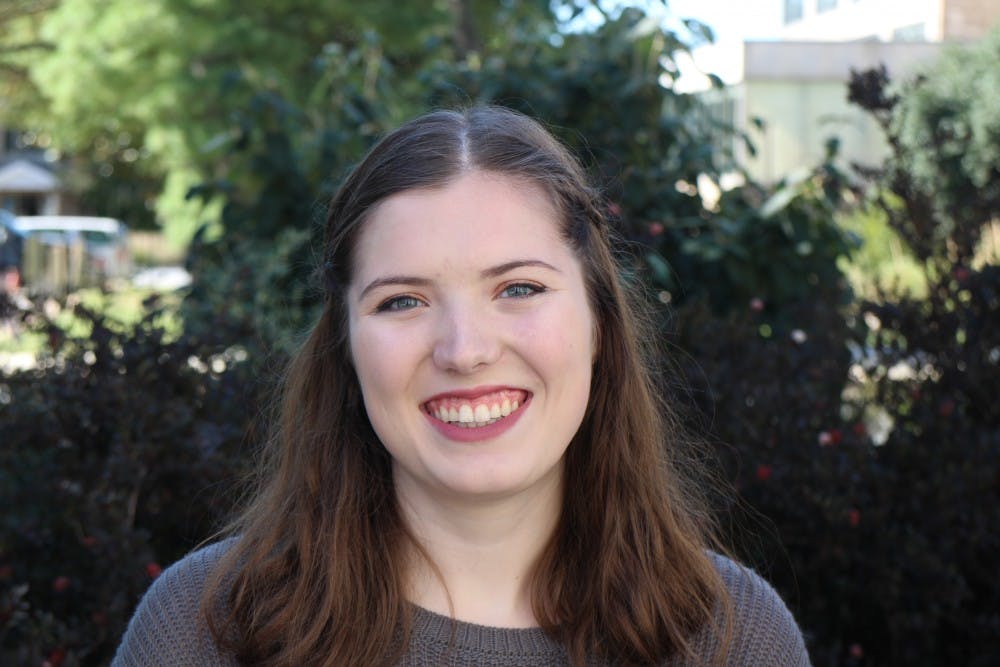The tenure process is long. After six years of jumping through scholarship hoops, professors must put all their hope on a single person: the provost. Job security for those in academia depends on just one person after years of scholarship and teaching. This dependence on one person can change the trajectory of one’s career. If someone has been denied tenure, it can be difficult to start fresh. The provost can single handedly change someone's life.
On Oct. 15, former School of International Service professor Loubna Skalli-Hanna won over $1.3 million in an age discrimination case brought against the University. Former provost Scott Bass was the one who denied her tenure application in 2014. Skalli-Hanna was 51 at the time of her application. For former provost Bass, in the jury’s eyes, this was reason enough to dismiss her.
Skalli-Hanna was encouraged at every stage of the tenure process. But her scholarship and teaching wasn’t enough to outweigh the issue Bass took with her age. When the Committee on Faculty Grievances found evidence for “serious concerns about the overall fairness of the process,” that wasn’t enough for former University President Neil Kerwin, either. Then again, court documents showed that he had written “old SIS” on Skalli-Hanna’s application, according to evidence presented by Skalli-Hanna’s lawyers.
For women, age is more than a number. Cases like these that remind us of all the supposed “clocks” women are made to run against. Academia has its unique issues with supporting women. The tenure process, as it functions now, leaves women out and ignores the realities of their lives in academia.
In research that analyzed two million articles from JSTOR in the hard sciences, social sciences, law, history, philosophy and education fields, 22 percent of all authors were female. Since scholarship is an essential part of the tenure process, it can be more of a challenge for women to be published due to discriminatory ideas about their research quality.
Teaching and service to the university are also factors when applying for tenure. Within teaching, there is room for discrimination. It is not out of the question for male students to have sexist ideas about their female professors that skew student teaching evaluations.
Typical with other jobs, women may feel that they have to commit more time than a male professor would, in order to seem as qualified. When the system has set women up to think they are not as capable, many women will act that way. The tenure process punishes them for it.
For those that are not approved for tenure, the career that has taken so many hours and years is essentially over. The professor has to begin all over again. Starting over can be especially difficult for women, as the challenges still exist from their previous experience.
Proving tenure discrimination is difficult, and to other universities it may appear that the professor wasn’t good enough. The tenure process at the University appears to be consistently leaving women out, when now more than ever women and women of color are needed in academia. These groups have deserved academic accolades for much longer than they’ve been given.
If the University is really committed to hiring more women and people of color as professors, then past tenure actions deserve re-evaluation. When we ignore the value of women’s life perspectives, we ensure that claims of diversity are only surface level. Kerwin and Bass are both still on University payroll as tenured professors in School of Public Affairs.
All the talented women that could have served this University further that were denied on spurious grounds had to go through the challenges that come with starting new. Skalli-Hanna is not the only woman to allege discrimination by the previous administration as The Eagle reported in the spring.
Women and women of color need appropriate understanding throughout their academic careers of the unique difficulties of entering a space that has been dominated by older, white men in the United States. The perspectives that women bring, and their ability to model success to their female students, are absolutely necessary. The University must recommit itself to truly hiring, and tenuring, women.
Samantha McAllister is a sophomore in the School of International Service and a columnist at The Eagle.





